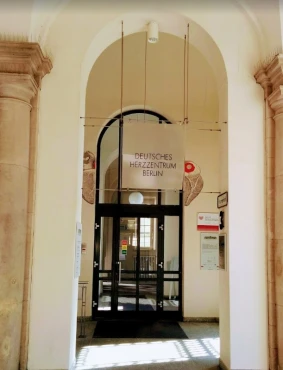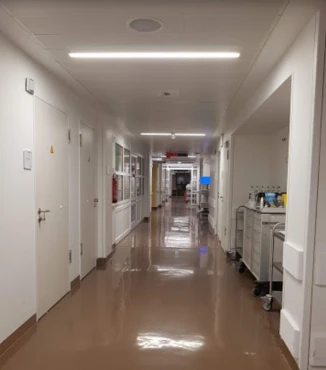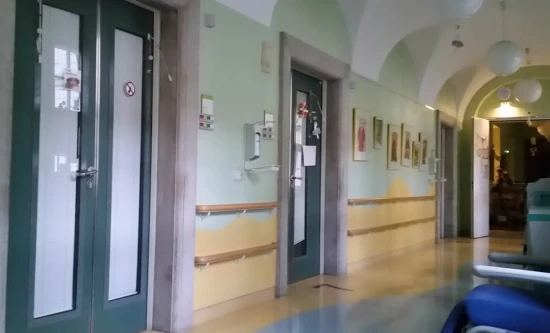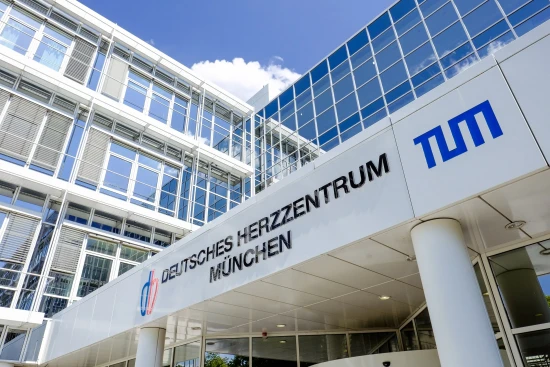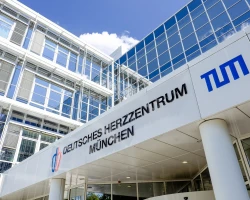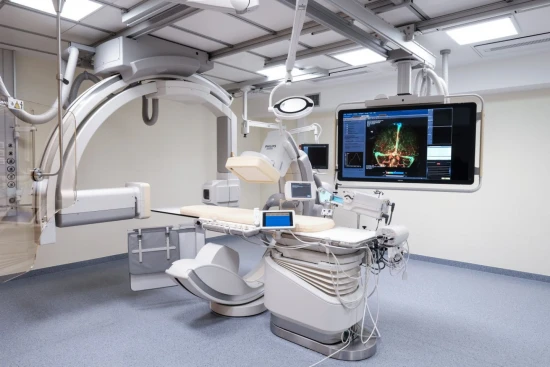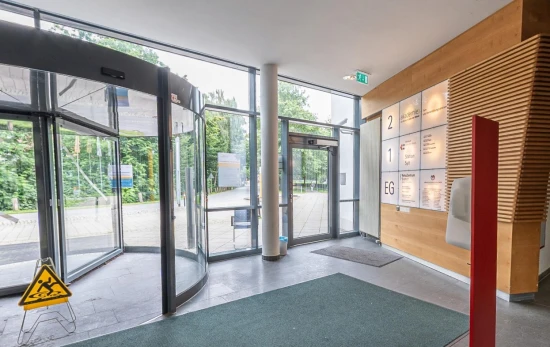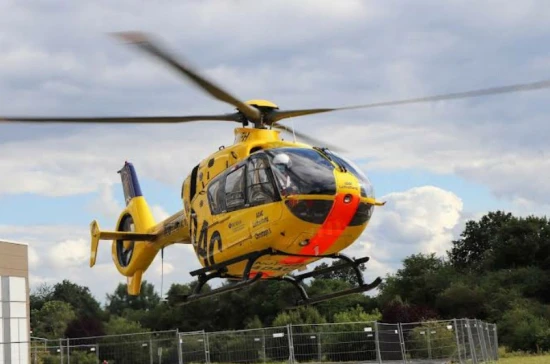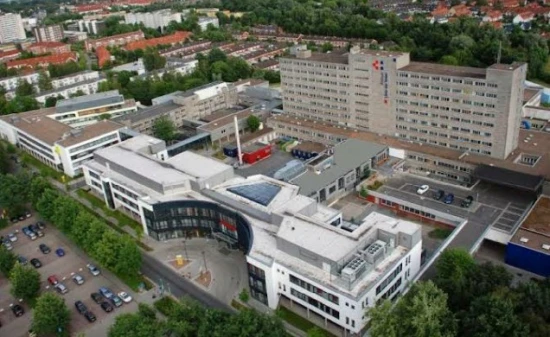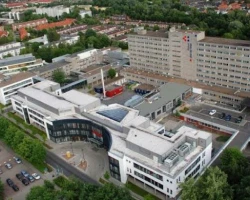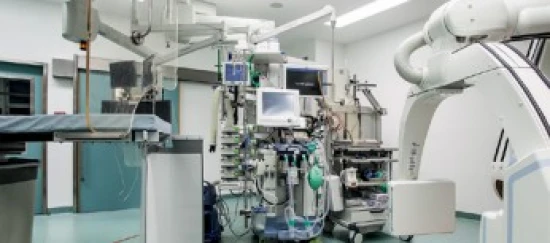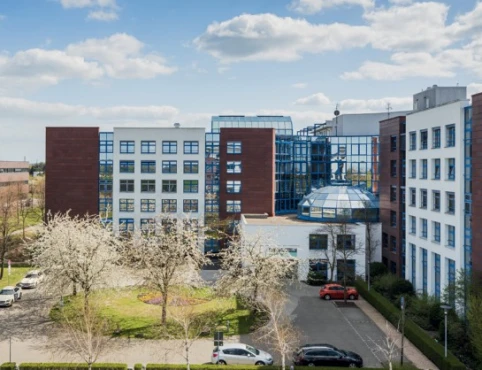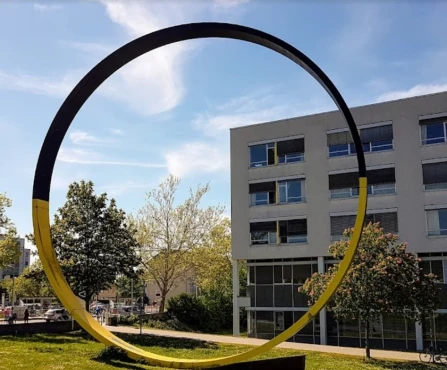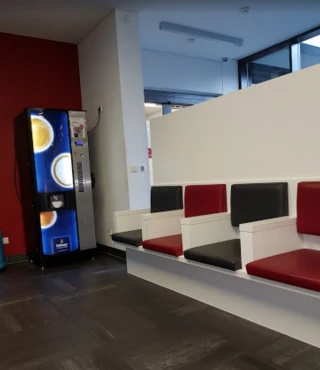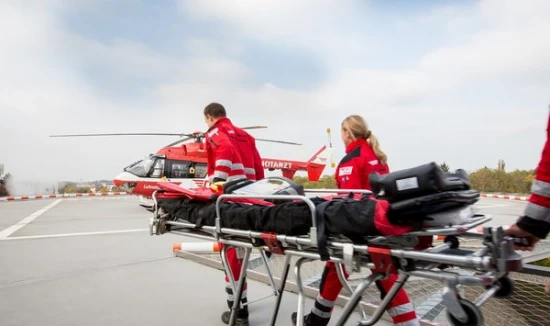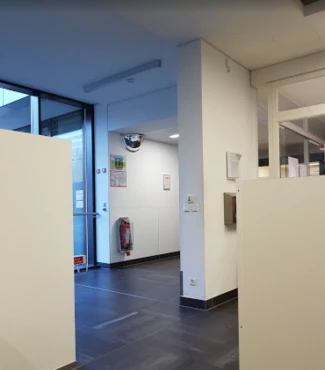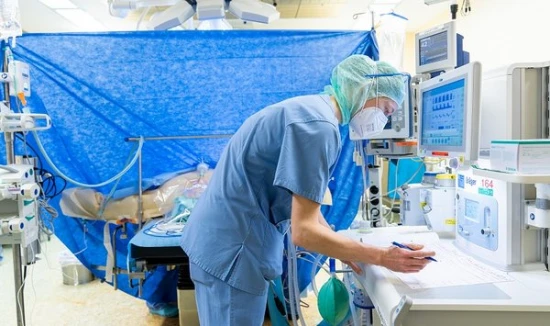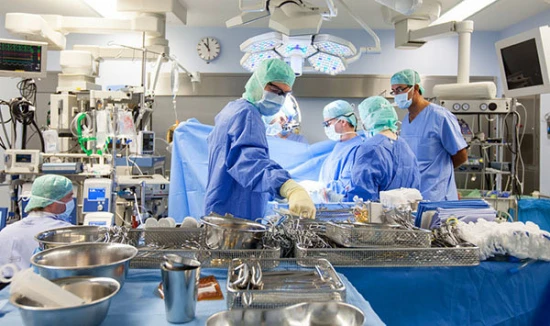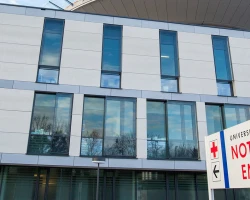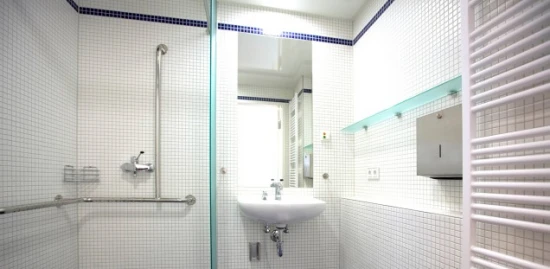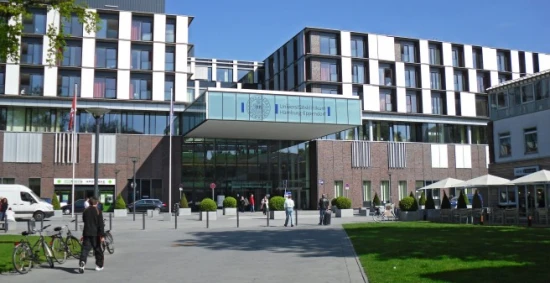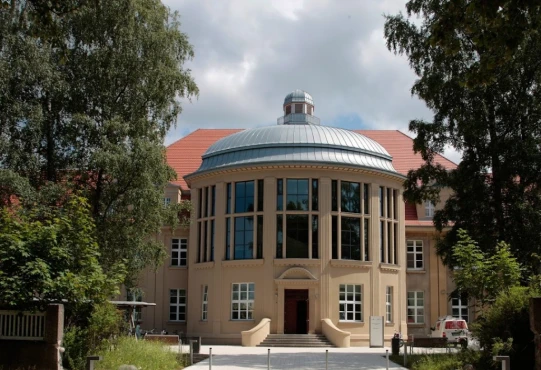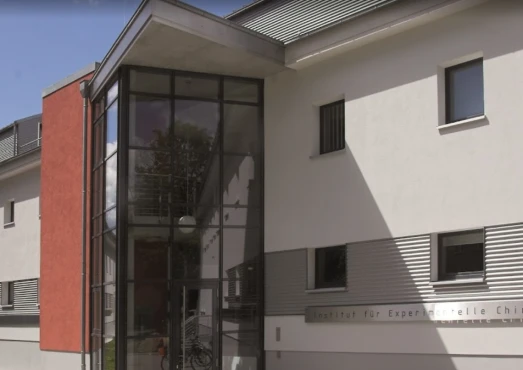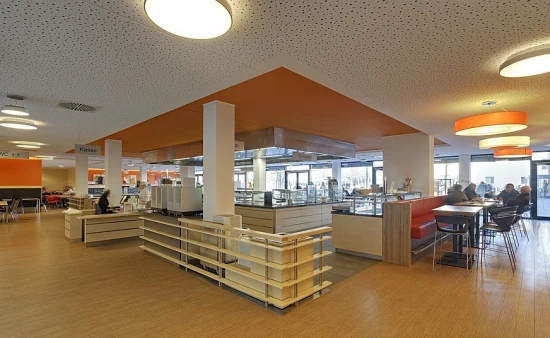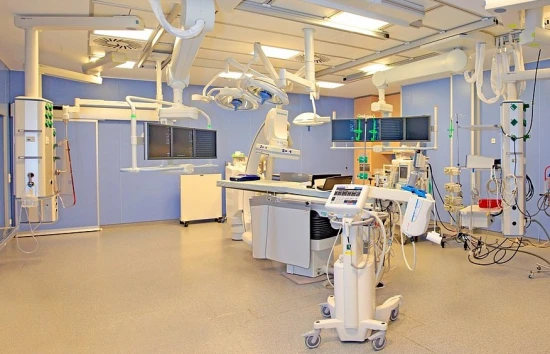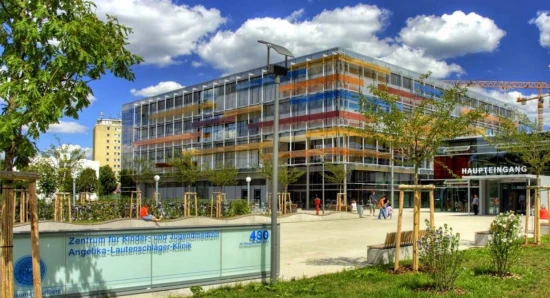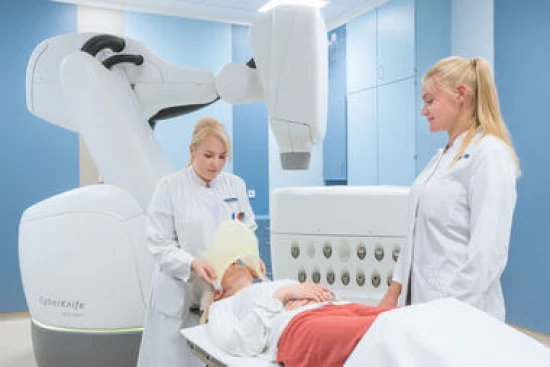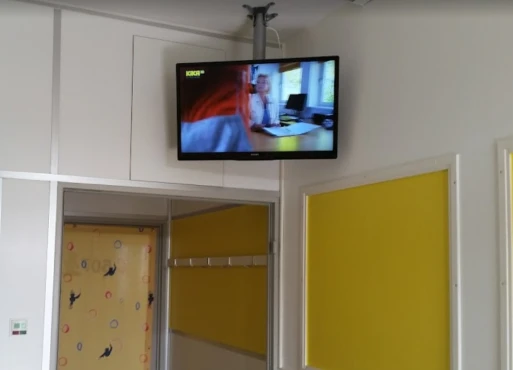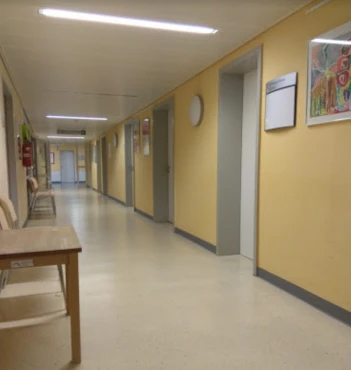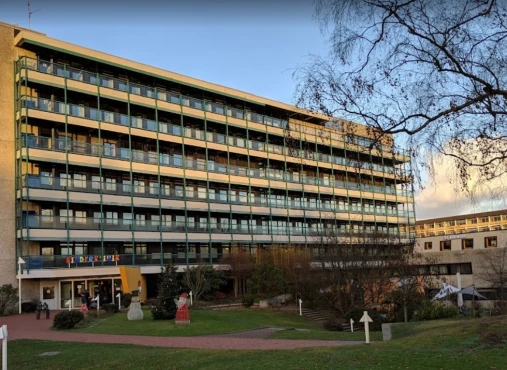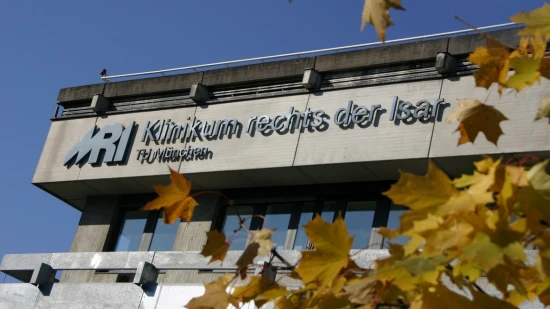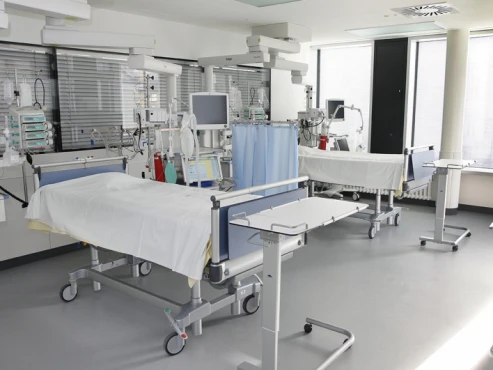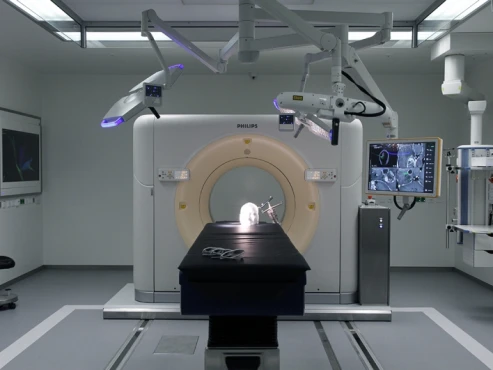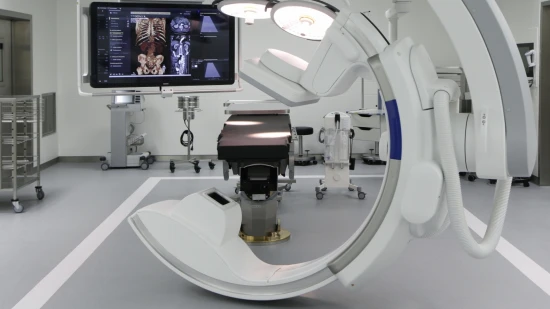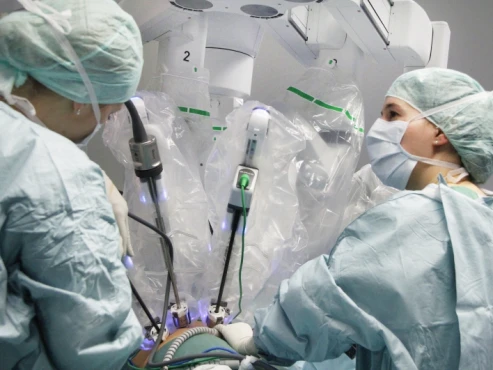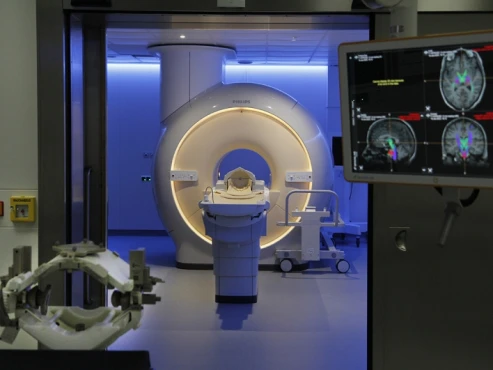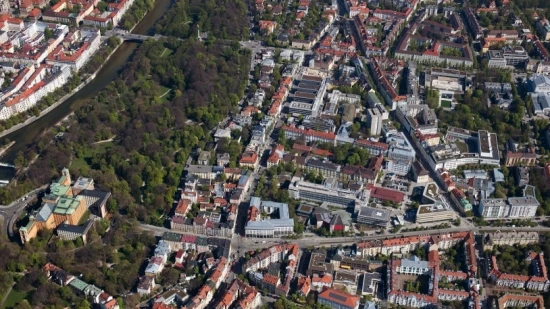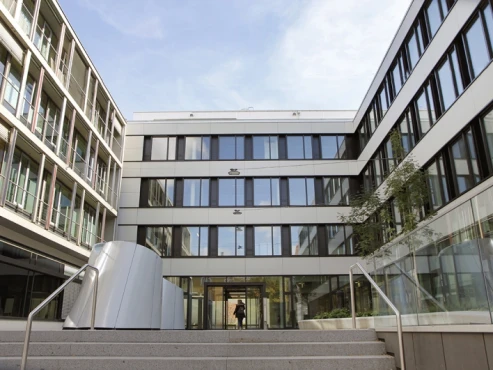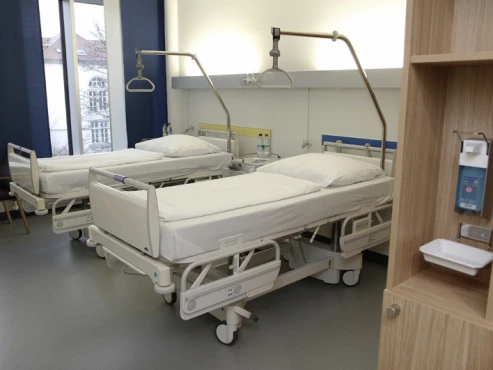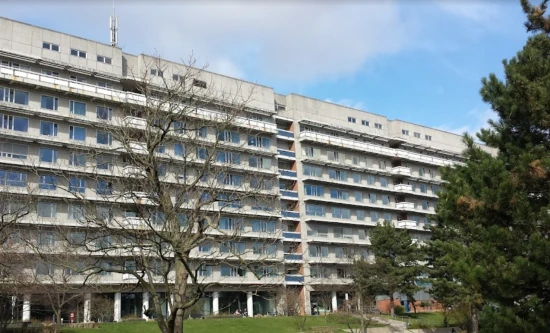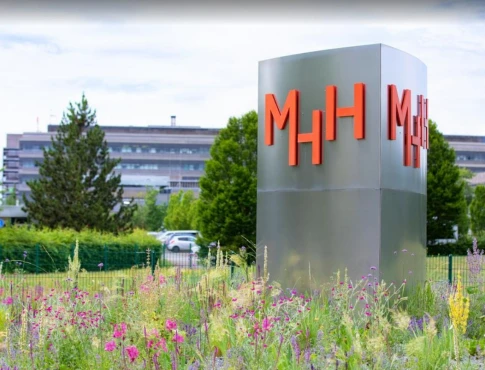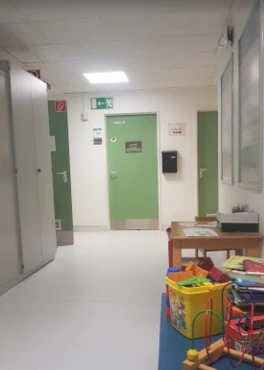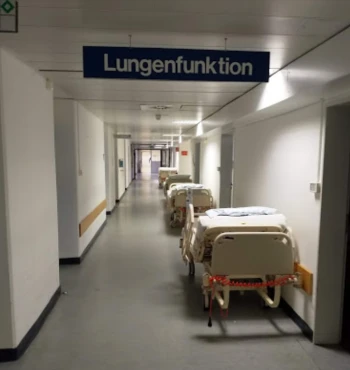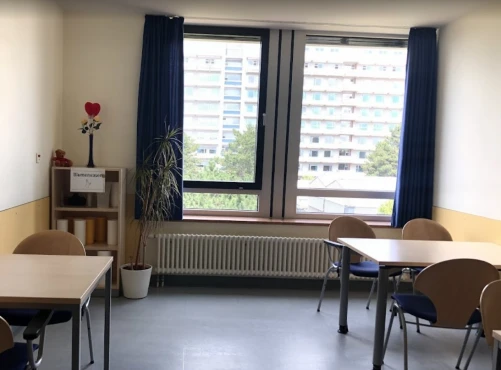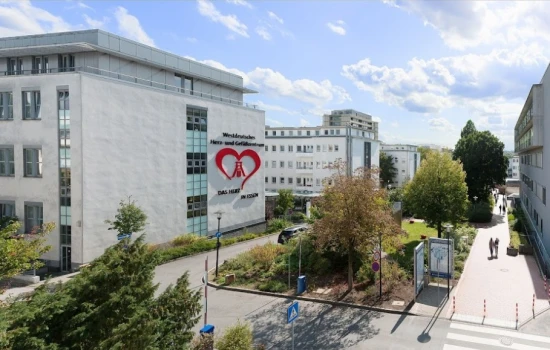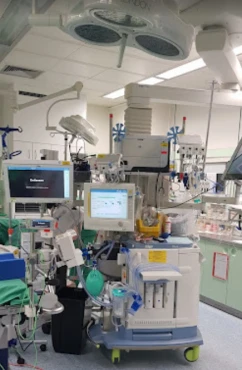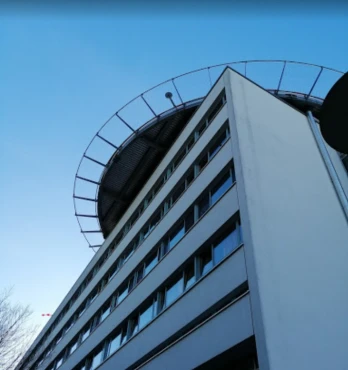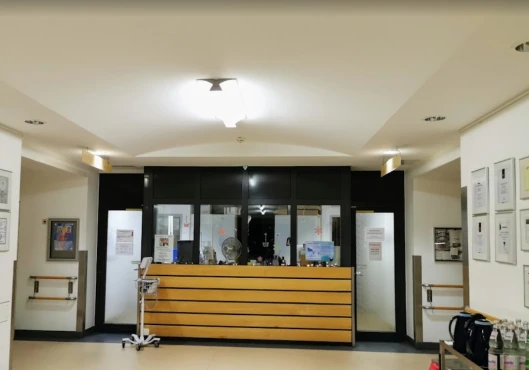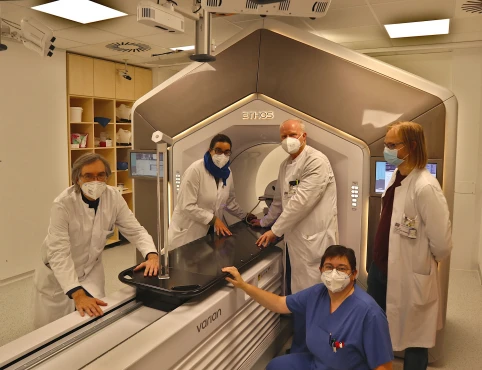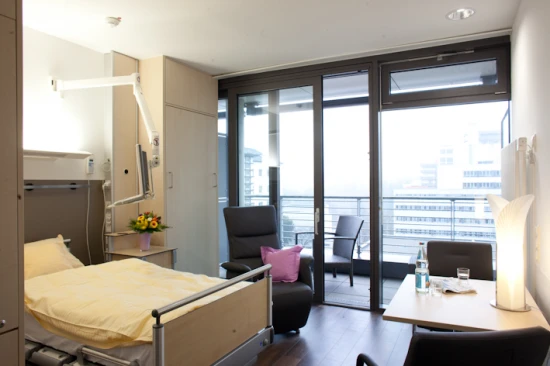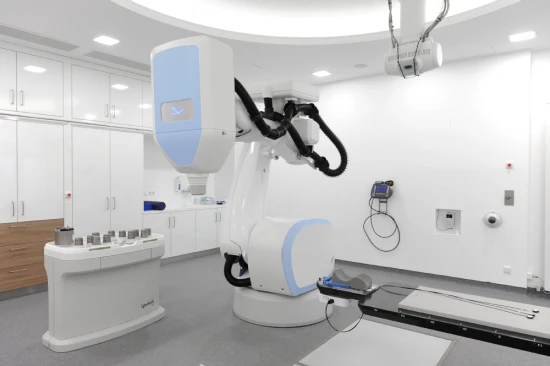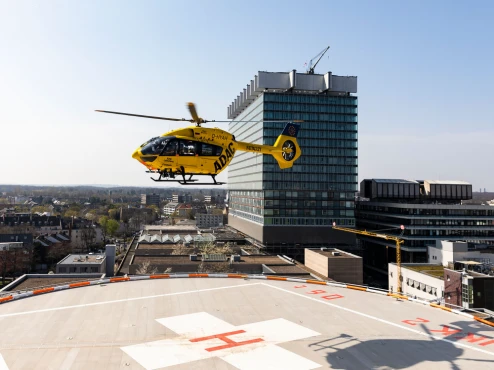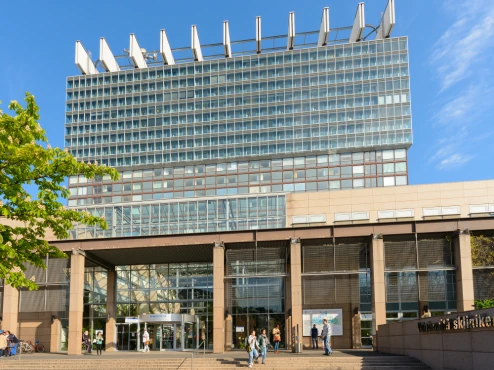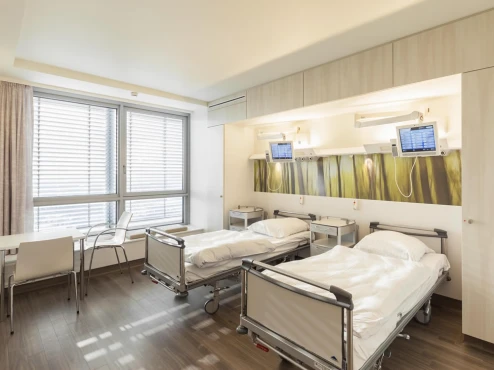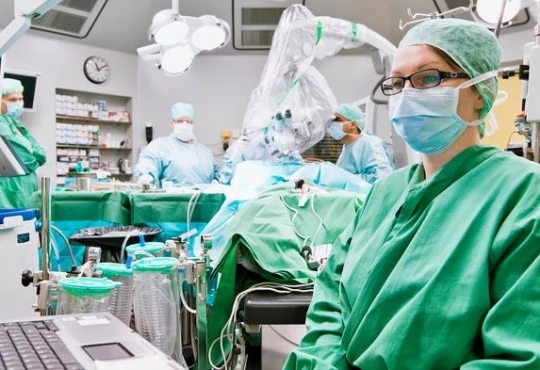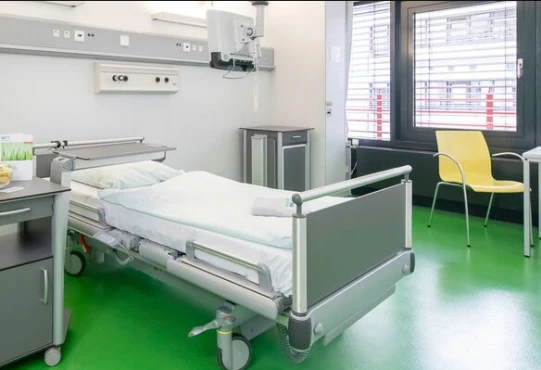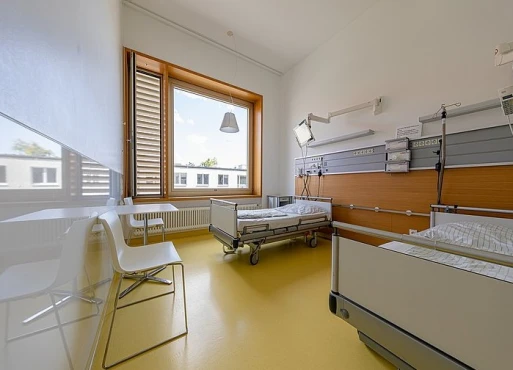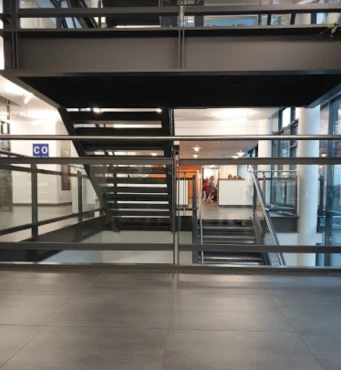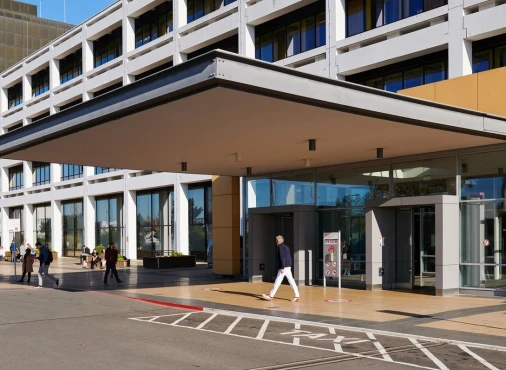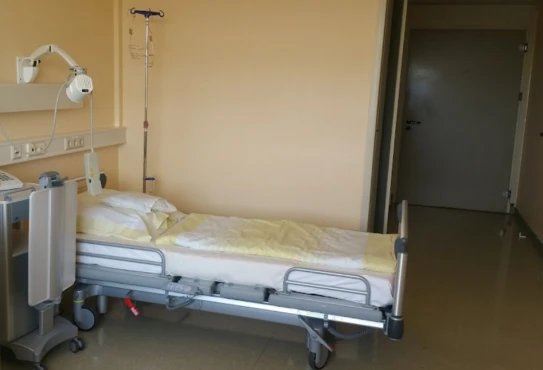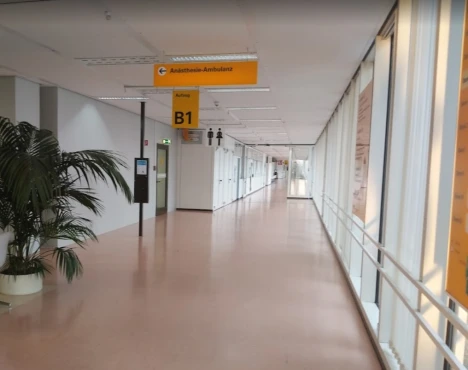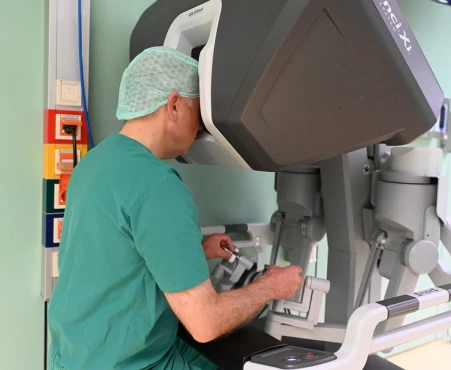Ebstein anomaly treatment in 18 Cardiac surgery clinics in Germany
18 clinics specializing in Cardiac surgery providing treatment of
Ebstein anomaly
Ebstein anomaly is a rare congenital heart defect where the tricuspid valve is malformed and displaced into the right ventricle. It can cause blood flow problems and may require surgical intervention for correction and improved cardiac function.
Read more...
disease in Germany.
Sorted by:
Relevance
Rating
Relevance
Prices for popular procedures:

Berlin, Germany
Specializations: Cardiac surgery, Vascular surgery
Languages: Arabic, Chinese, English, French, German, Russian, Spanish; Castilian
Helping people with heart disease by providing the best possible medical care using the very latest technology – that’s the mission of the medical and
read more
Prices for popular procedures:

Hamburg, Germany
Specializations: Cardiac surgery, Vascular surgery, Thoracic surgery, Neurosurgery, Spine surgery, Orthopedic surgery, Oncology
For more than 190 years, our hospital has been representing medical expertise and responsibility. As a maximum care hospitalwith five medical centers and 20 specialist
read more
Prices for popular procedures:
Prices for popular procedures:
Prices for popular procedures:
Prices for popular procedures:
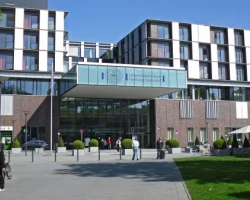
Hamburg, Germany
Specializations: Cardiac surgery, Vascular surgery, Thoracic surgery, Neurosurgery, Spine surgery, Orthopedic surgery, Oncology
Languages: Arabic, English, German, Russian
Knowledge – Research – Healing through Shared Competence We are one of Europe´s most modern clinics. Here specialists from all fields of medicine are brought
read more
Prices for popular procedures:
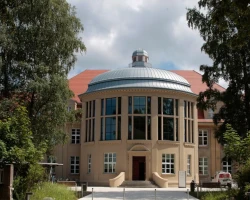
Rostock, Germany
Specializations: Cardiac surgery, Vascular surgery, Thoracic surgery, Neurosurgery, Spine surgery, Orthopedic surgery, Oncology
Cutting-edge medicine with a heart The Rostock University Medical Center is the maximum care provider for the region. In contrast to other parts of the
read more
Prices for popular procedures:

Krefeld, Germany
Specializations: Cardiac surgery, Vascular surgery, Thoracic surgery, Neurosurgery, Spine surgery, Orthopedic surgery, Oncology
Languages: English, Russian
As a modern hospital of maximum care, we offer you state-of-the-art medicine. This includes excellently trained doctors and nursing staff, innovatve medical technology and treatment
read more
Prices for popular procedures:

Heidelberg, Germany
Specializations: Cardiac surgery, Vascular surgery, Thoracic surgery, Neurosurgery, Spine surgery, Orthopedic surgery, Oncology
Languages: Arabic, English, Russian
More than six hundred years ago, the first German university was founded in Heidelberg. Today, it attracts international acclaim for its life sciences – especially
read more
Prices for popular procedures:
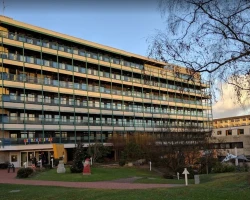
Sankt Augustin, Germany
Specializations: Cardiac surgery, Vascular surgery, Thoracic surgery, Neurosurgery, Spine surgery, Orthopedic surgery, Oncology
Our children's clinic is available at all times for medical emergencies involving children. Specialists from 15 specialist departments work around the clock to ensure fast
read more
Prices for popular procedures:
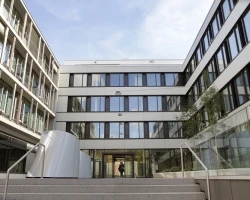
Munich, Germany
Specializations: Cardiac surgery, Vascular surgery, Thoracic surgery, Neurosurgery, Spine surgery, Orthopedic surgery, Oncology
Languages: English, Spanish; Castilian
Klinikum rechts der Isar is the university hospital of the Technical University Munich (TUM), and provides the ideal setting in which to offer the best
read more
Prices for popular procedures:

Hannover, Germany
Specializations: Cardiac surgery, Vascular surgery, Thoracic surgery, Neurosurgery, Spine surgery, Orthopedic surgery, Oncology
The MHH Hospital is a maximum care hospital with a nationwide catchment area. The university teaches medicine, dentistry, biochemistry, biomedicine, midwifery and health sciences. The
read more
Prices for popular procedures:

Essen, Germany
Specializations: Cardiac surgery, Vascular surgery, Thoracic surgery, Neurosurgery, Spine surgery, Orthopedic surgery, Oncology
The University Hospital Essen is part of the University Medicine Essen hospital group . This includes 15 other subsidiaries , including the Ruhrland Clinic, the
read more
Prices for popular procedures:

Köln, Germany
Specializations: Cardiac surgery, Vascular surgery, Thoracic surgery, Neurosurgery, Spine surgery, Orthopedic surgery, Oncology
Germany is one of the world's leading medical countries worldwide. Its 33 university hospitals form the highest tier of the country's sophisticated healthcare system. The
read more
Prices for popular procedures:

Aachen, Germany
Specializations: Cardiac surgery, Vascular surgery, Thoracic surgery, Neurosurgery, Spine surgery, Orthopedic surgery, Oncology
Languages: English
As a university maximum care provider, we offer you top-quality medicine with a human face at the RWTH Aachen University Hospital. The architecturally and organizationally
read more
Prices for popular procedures:

Erlangen, Germany
Specializations: Cardiac surgery, Vascular surgery, Thoracic surgery, Neurosurgery, Spine surgery, Orthopedic surgery, Oncology
Languages: Arabic, English, German, Polish, Russian
The world’s state-of-the-art operating theatre, up-to-date equipment, science-based diagnostic and therapeutic procedures: the 42 departments and eight institutes of Universitätsklinikum Erlangen comprehend every field of
read more
Prices for popular procedures:

Göttingen, Germany
Specializations: Cardiac surgery, Vascular surgery, Thoracic surgery, Neurosurgery, Spine surgery, Orthopedic surgery, Oncology
Languages: English
The University Medicine Göttingen (UMG) is one of the leading university medical institutions in Germany. According to the advertising slogan, Göttingen is the "city that
read more
Clinics grouping by rating
Clinic with the highest rating of 4.4 — Leipzig Heart Center in Leipzig, Germany, clinic with the most reviews number of 1601 — University Medical Center Hamburg-Eppendorf (UKE) in Hamburg, Germany.
With rating 4.0 and over — 3 clinics .
Countries with the highest number of clinics treating the diseases:
Ebstein anomaly:
worldwide
325 clinics
India
29 clinics
Turkey
28 clinics
Brazil
21 clinics
Germany
18 clinics
Mexico
11 clinics
Related procedures:
Procedures are likely to be used for Ebstein anomaly treatment:
Ebstein anomaly correction
and
Fetal cardiac interventions
.


